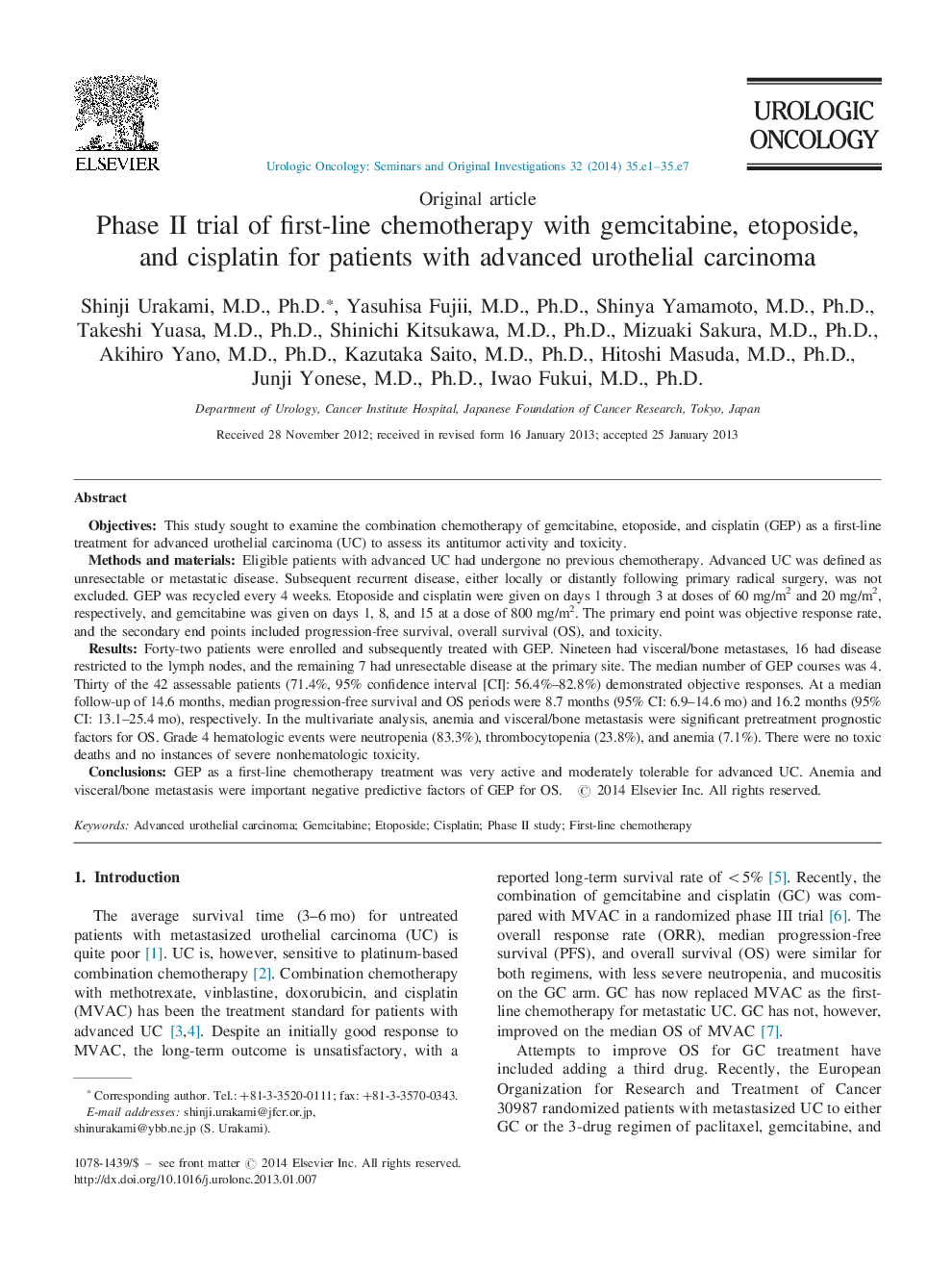| کد مقاله | کد نشریه | سال انتشار | مقاله انگلیسی | نسخه تمام متن |
|---|---|---|---|---|
| 6194439 | 1259362 | 2014 | 7 صفحه PDF | دانلود رایگان |

ObjectivesThis study sought to examine the combination chemotherapy of gemcitabine, etoposide, and cisplatin (GEP) as a first-line treatment for advanced urothelial carcinoma (UC) to assess its antitumor activity and toxicity.Methods and materialsEligible patients with advanced UC had undergone no previous chemotherapy. Advanced UC was defined as unresectable or metastatic disease. Subsequent recurrent disease, either locally or distantly following primary radical surgery, was not excluded. GEP was recycled every 4 weeks. Etoposide and cisplatin were given on days 1 through 3 at doses of 60Â mg/m2 and 20Â mg/m2, respectively, and gemcitabine was given on days 1, 8, and 15 at a dose of 800Â mg/m2. The primary end point was objective response rate, and the secondary end points included progression-free survival, overall survival (OS), and toxicity.ResultsForty-two patients were enrolled and subsequently treated with GEP. Nineteen had visceral/bone metastases, 16 had disease restricted to the lymph nodes, and the remaining 7 had unresectable disease at the primary site. The median number of GEP courses was 4. Thirty of the 42 assessable patients (71.4%, 95% confidence interval [CI]: 56.4%-82.8%) demonstrated objective responses. At a median follow-up of 14.6 months, median progression-free survival and OS periods were 8.7 months (95% CI: 6.9-14.6Â mo) and 16.2 months (95% CI: 13.1-25.4Â mo), respectively. In the multivariate analysis, anemia and visceral/bone metastasis were significant pretreatment prognostic factors for OS. Grade 4 hematologic events were neutropenia (83.3%), thrombocytopenia (23.8%), and anemia (7.1%). There were no toxic deaths and no instances of severe nonhematologic toxicity.ConclusionsGEP as a first-line chemotherapy treatment was very active and moderately tolerable for advanced UC. Anemia and visceral/bone metastasis were important negative predictive factors of GEP for OS.
Journal: Urologic Oncology: Seminars and Original Investigations - Volume 32, Issue 1, January 2014, Pages 35.e1-35.e7